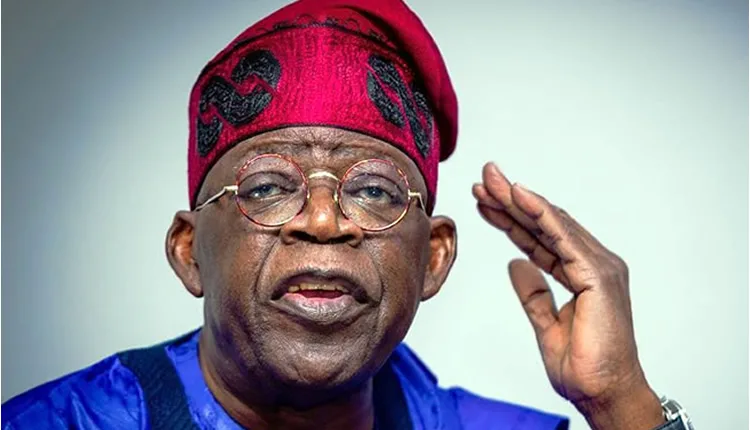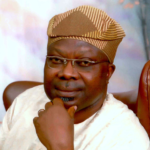President Bola Ahmed Tinubu has taken significant steps to secure a backing for his proposed tax reform bills by engaging northern leaders, even as some governors in the region continue to resist the initiative.
This is a key move in his administration’s drive to reform Nigeria’s fiscal system and reduce the nation’s dependence on oil revenue.
Join our WhatsApp ChannelPush for Tax Reform Bills Amid Regional Resistance
The Nigerian tax reform bills, introduced in October 2024, were met with mixed reactions. Among the bills are the Nigeria Tax Bill 2024, the Nigeria Tax Administration Bill, the Nigeria Revenue Service (Establishment) Bill, and the Joint Revenue Board (Establishment) Bill. These bills are designed to address Nigeria’s growing fiscal challenges and diversify government revenue. However, they were suspended in December for further consultations to address concerns and ensure broader acceptance.
As resistance from some northern governors persists, President Tinubu has reportedly dispatched emissaries to meet with key northern stakeholders. This move aims to sway the opinion of the influential leaders, especially in the northern states where the bills face the strongest opposition.
Emissaries Engage Northern Leaders
The emissaries are tasked with meeting both individual leaders and groups within the northern elite to discuss the tax reforms and address concerns. An anonymous source confirmed that these discussions began even before the festive season. The emissaries were sent to engage stakeholders on the ground, with the goal of softening resistance and finding a middle ground that could accommodate the concerns of the northern governors.
READ ALSO:Tax Reform Bills Face Roadblocks As State Governors Resist Engagement, Oyedele Reveals
A presidency official revealed, “What I know is that President Tinubu has been consulting with northern leaders both individually and as groups, even before the holidays.”
Concerns from Northern Governors
Despite these outreach efforts, many northern governors remain opposed to the tax reform bills, citing potential negative impacts on their states. Critics argue that the proposed tax changes would disproportionately affect northern regions, where economic activities are less diverse compared to the southern states. The governors argue that the reforms could deepen regional inequalities, burden state budgets, and exacerbate the financial strain on northern states that rely heavily on federal allocations.
The pushback from northern governors highlights the complexity of Tinubu’s task, balancing the need for urgent fiscal reforms with regional concerns and political realities. Some observers worry that the resistance could lead to delays in the implementation of the tax reforms, complicating efforts to address Nigeria’s fiscal deficit.
Tinubu’s Strategy to Bridge Divides
In response to the opposition, President Tinubu has resorted to backdoor diplomacy, seeking to build consensus among northern leaders. Analysts suggest that the outreach strategy may include offering concessions on certain aspects of the bills. Possible adjustments could involve phased implementation to allow affected states more time to adapt to the reforms or even increased federal support for states that may be most affected by the changes.
Tinubu’s efforts are seen as part of a broader strategy to manage regional tensions and avoid a national impasse. While the details of the consultations remain largely undisclosed, the president’s moves are designed to address the concerns of the northern governors while pushing for the successful passage of the bills.
The Stakes for Tinubu and the Country
For President Tinubu, the stakes are high. The tax reform bills are crucial to Nigeria’s fiscal recovery and to reducing the country’s over-reliance on oil revenue. Nigeria has long struggled with a lack of revenue diversification, and the tax reforms are seen as vital to ensuring the country’s long-term economic stability. However, with significant opposition from the northern governors, Tinubu’s ability to secure the political consensus necessary to pass the bills is being tested.
As the consultations continue, all eyes will be on whether Tinubu’s diplomatic approach will yield the necessary support from northern leaders. If successful, the bills could provide a framework for addressing Nigeria’s fiscal deficit and creating a more diversified revenue system. However, if resistance remains strong, the tax reform agenda could face further delays, and the president may have to consider alternative approaches to addressing the country’s fiscal crisis.
Looking Ahead
The coming weeks will be critical in determining whether Tinubu can bridge the gap between regional interests and push his tax reform agenda through the National Assembly. The success of the tax reform bills is seen as an essential part of the president’s economic agenda. However, with political challenges ahead, the outcome remains uncertain.
Emmanuel Ochayi is a journalist. He is a graduate of the University of Lagos, School of first choice and the nations pride. Emmanuel is keen on exploring writing angles in different areas, including Business, climate change, politics, Education, and others.
- Emmanuel Ochayihttps://www.primebusiness.africa/author/ochayi/
- Emmanuel Ochayihttps://www.primebusiness.africa/author/ochayi/
- Emmanuel Ochayihttps://www.primebusiness.africa/author/ochayi/
- Emmanuel Ochayihttps://www.primebusiness.africa/author/ochayi/

















Follow Us